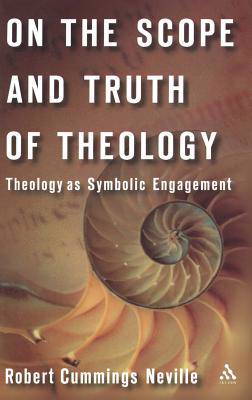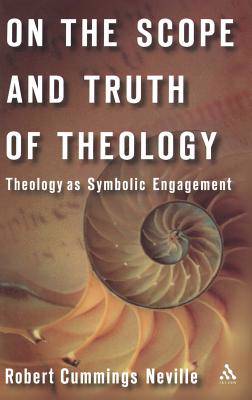
- Retrait gratuit dans votre magasin Club
- 7.000.000 titres dans notre catalogue
- Payer en toute sécurité
- Toujours un magasin près de chez vous
- Retrait gratuit dans votre magasin Club
- 7.000.000 titres dans notre catalogue
- Payer en toute sécurité
- Toujours un magasin près de chez vous
On the Scope and Truth of Theology
Theology as Symbolic Engagement
Robert Cummings Neville
Livre relié | Anglais
161,45 €
+ 322 points
Format
Description
This is the first volume of Robert Cumming Neville's magnum opus, Theology as Symbolic Engagement. Neville is the premier American systematic theologian of our time. His work is profoundly influenced by Paul Tillich, Friedrich Schleiermacher, and the American pragmatists John Dewey and Charles Sanders Pierce. From Tillich he takes the notion of religion, art, and morality as symbol, and the notion that religion is the substance of culture and culture the form of religion. Thus, theology is symbolic engagement with cultural forms, and Neville explores the ways that such engagement occurs among various religious traditions.
One of the most important tasks in theology is to devise ways of testing, correcting, or affirming claims that we had been unable to question before. This book will argue that "system" in theology is not merely correlating assertions, but rather building perspectives from which we can render the various parts of theology vulnerable for assessment. In fact, one of the unique features of this book is its engagement with other religions. Such dialogue has been a feature of Neville's work from the beginning. Theology as Symbolic Engagement breaks the boundaries of systematic theology and moves away from the static character that characterizes such enterprises from Barth onward. Instead, Neville's book showcases the dynamic character of all theology. The hallmark of this entire project is its effort to show theology to be hypothetical and to make it vulnerable to correction.Spécifications
Parties prenantes
- Auteur(s) :
- Editeur:
Contenu
- Nombre de pages :
- 256
- Langue:
- Anglais
Caractéristiques
- EAN:
- 9780567027320
- Date de parution :
- 05-06-06
- Format:
- Livre relié
- Format numérique:
- Ongenaaid / garenloos gebonden
- Dimensions :
- 154 mm x 230 mm
- Poids :
- 430 g







